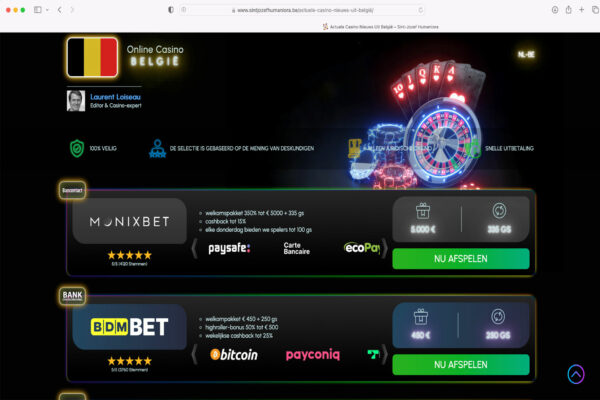Gambling industry sounds alarm: millions of players at risk
A recent study paints a disturbing picture of the online gambling industry: the rise of fake casino games. These rigged games manipulate the outcomes to scam players out of as much money as possible, without them realizing it. The problem is getting worse, and unsuspecting gamblers are losing huge amounts of money as a result.
How fake casino games are taking over the market
According to research conducted by CasinoReviews and reported by Gambling Insider, entitled The Fake Contagion, an increasing number of unverified vendors are distributing fake games that look like popular gambling games, but whose outcomes have been manipulated in the casino’s favor. Unlike legitimate games from licensed providers, these fake games run on unregulated software, making the chance of winning virtually zero.

What makes it even more worrying is that operators can adjust the Return to Player (RTP), or payout percentage, to ensure that the casino always wins. This is of course completely unfair to the players, who think they have a fair chance.
Misleading advertisements and illegal casinos
In addition to the spread of fake games, there is also an increase in misleading advertisements that lure players to illegal gambling sites. For example, think of an advertisement for a casino in Middelkerke. It seems like a reliable gambling site, but if you click through, you end up on an illegal website that has nothing to do with a real casino. This is often where the manipulated fake games are offered, which means you have almost no chance of winning.
Players who fall into this trap end up in a world of fake platforms and unreliable games, without any protection from the law or regulation.
Stricter rules needed to protect players
CasinoReviews calls on the entire gambling industry to take action against this problem. They want a system with verification seals, so that players can easily see which games are legal and fair. They also advocate stricter rules to ensure that these fake games disappear and players can play safely.
Duncan Garvie of CasinoReviews emphasises the seriousness of the situation: “The spread of fake casino games is a major threat to the integrity of the online gambling industry. Players are being cheated, and honest operators are also suffering.”
Garvie calls for swift action: “It is crucial that the industry comes together to tackle this problem and ensure that players are safe from this exploitation.”
Gambling Club exposes illegal gambling sites
Gambling Club discovered that illegal gambling sites are hiding behind the websites of public schools. Hackers add special links to school domains, such as that of Sint-Jozef Humaniora in Bruges, which redirect visitors to illegal casinos such as Monixbet.

This raises major concerns about the security of online domains, especially as these practices can affect minors. School principal Diederik Maes was unaware of the abuse and immediately took steps to investigate.
This incident is not an isolated case; several reputable websites have been hacked to promote illegal gambling sites. These hacked URLs make illegal casinos appear trustworthy, misleading consumers. The Gaming Commission has been informed of Gambling Club’s findings and further action is expected.


